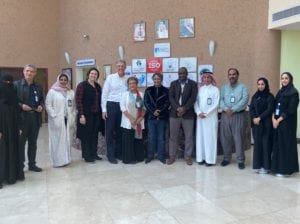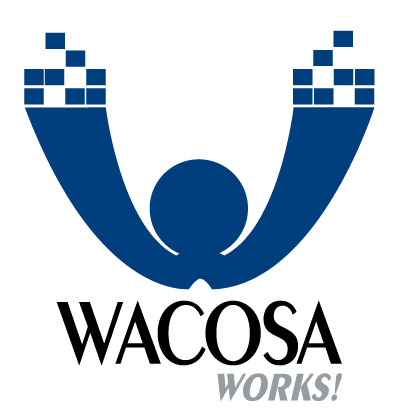WACOSA’s Executive Director Visits Middle East

“Given the continual unrest in the middle east, it truly was gratifying to have such a positive and educational experience”, says Steve Howard, WACOSA’s Executive Director. Howard recently returned from a 7-day accreditation visit to the Shamah Autism Center located in Dammam, Saudi Arabia. Along with serving as WACOSA’s Executive Director, Howard has served as a “CARF Surveyor” for the past 28 years of his career. CARF International’s United States office is based in Tucson, Arizona. Incorporated in 1966, the name “CARF” originates from the Commission on Accreditation of Rehabilitation Facilities. CARF is an independent, nonprofit accreditor of health and human services that dedicates itself to ensuring that accredited programs focus on quality, rehabilitation results and continual best practices. WACOSA has been accredited at CARF’s highest level since 2001.
While CARF accredits services internationally, this is the first time in 28 years working as a surveyor Howard has been asked to travel overseas to conduct an accreditation visit. “WACOSA’s Board of Directors is incredibly forward-thinking in allowing me occasional time away to conduct these visits”, Steve says. “While I am constantly learning new service techniques during these visits, I am also able to share many of the best practices and techniques WACOSA has found to be successful in serving people over the years. It truly is a win-win for both WACOSA, as well the programs I visit”. Howard was the administrative team leader on the recent, two-person team that visited Saudi Arabia. “This recent trip helped me remember that, though the Shamah Autism Center is almost 7,000 miles away from WACOSA, we are still a community of providers all working as partners to help persons with a variety of challenges live the best lives they can. Autism in Saudi Arabia offers the same challenges it does for service providers here in the United States”. When asked to share one key takeaway from this recent experience, Steve pointed out that, “It helped me remember that, even with services a world away, we have an obligation to continue to do all we can to influence the lives of those we serve for the better. To do this, we need to constantly pursue service excellence and innovative practices. No matter where we live, how we dress or the language we speak, those we serve deserve nothing less”.

